100-Year-Old Life Hacks That Are Surprisingly Useful Today
In the words of philosopher and poet George Santayana, “Those who cannot remember the past are condemned to repeat it.” But this time around, we beg to differ! We agree that advice from the early 1900s is not the first place you go for hacks to make life simpler. (Thanks, Google!) However, the New York Public Library digitized 100 “How to Do It” cards that manufacturers would place inside cigarette boxes.
Back in the early twentieth century, cigarette companies would place these cards in their products. They quickly became collectibles that included anything from celebrity photos to advertisements. But printing life hacks on these cards was an idea pioneered by the UK-founded tobacco company Gallaher cigarettes. Now, while we can’t support cigarettes themselves, there is no doubting these cigarette card life hacks probably helped make many people’s lives easier, at least a little bit.
For your viewing pleasure, we’ve compiled a list of the most clever and practical 100-year-old life hacks that are still useful today.
Advertisement
23 100-Year-Old Life Hacks That Are Surprisingly Useful Today
These images are the life hacks people used to get in their cigarette packs, coupled with a little instructional sheet which we’ve quoted for you below each one.
1. How to Extract a Splinter
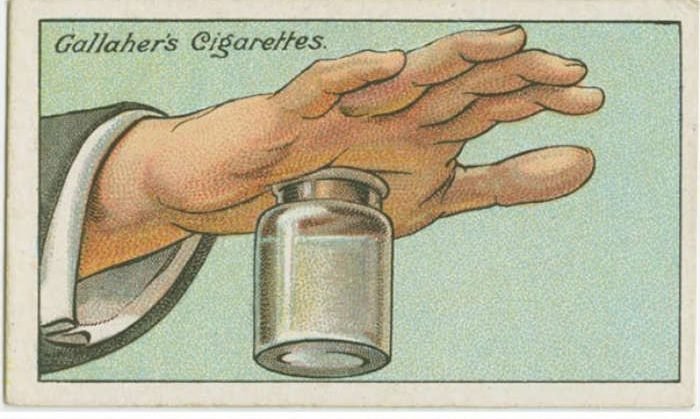
“A splinter embedded in the hand is often very painful to extract. A good way to accomplish this is to fill a wide-mouthed bottle with hot water nearly to the brim, and press affected part of the hand tightly against mouth of bottle. The suction will pull down the flesh, and steam will soon draw out the splinter.“
2. How to Cut New Bread into Thin Slices
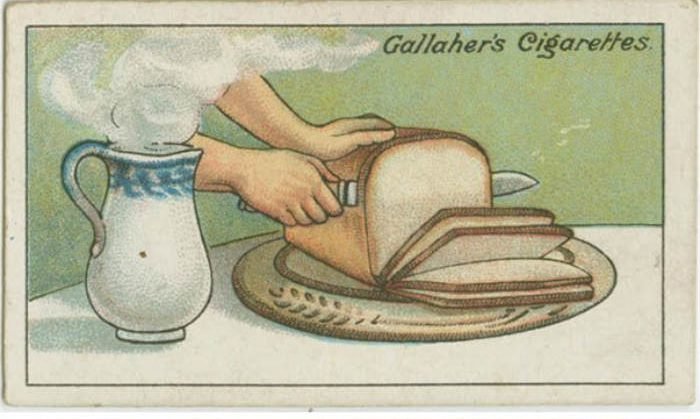
“The difficulty of cutting new bread into thin slices can readily be overcome by the following expedient. Plunge the bread knife into hot water and when thoroughly hot wipe quickly. It will be found that the heated knife will cut soft, yielding new bread into the thinnest slices.“
3. How to Revive Cut Flowers
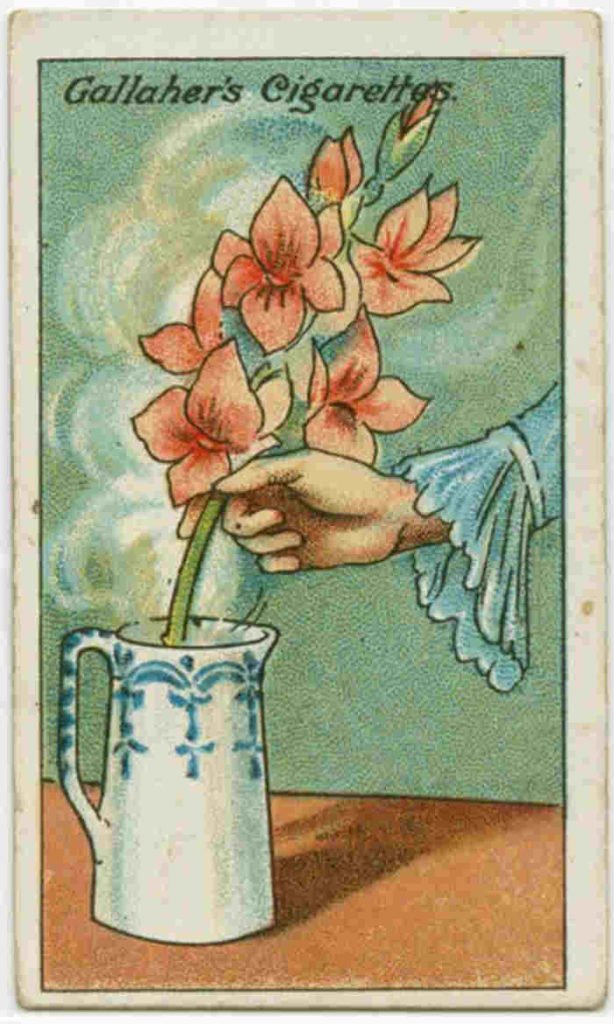
“To revive choice blooms that have faded during transit, plunge the stems into hot water, and allow them to remain until the water has cooled. By that time the flowers will have revived. The ends of the stems should then be cut off and the blossoms placed in cold water in the usual way.“
4. How to Make a Fire Extinguisher
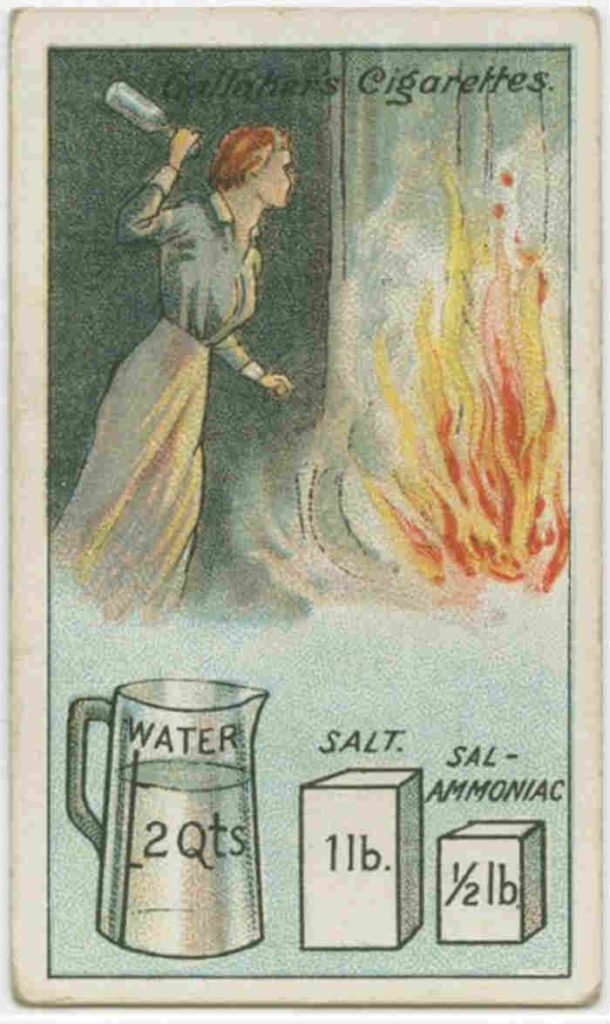
“Dissolve one pound of salt and half a pound of sal-ammoniac in two quarts of water and bottle the liquor in thin glass bottles holding about a quart each. Should a fire break out, dash one or more of the bottles into the flames, and any serious outbreak will probably be averted.”
5. How to Test Butter
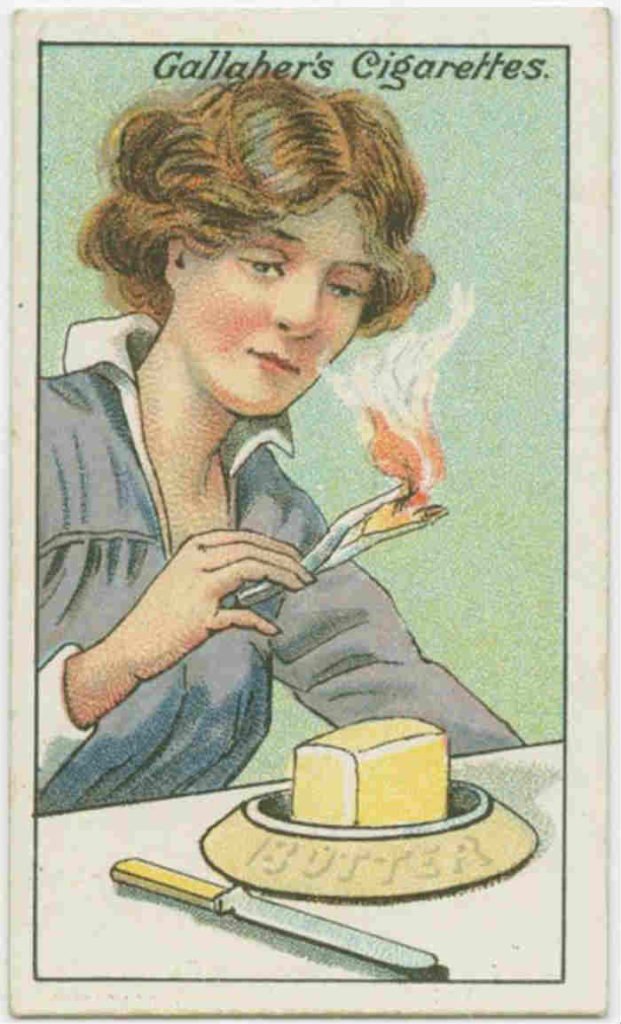
“A good way of testing butter is shown in the picture. Rub a little of the suspected compound upon a piece of paper and set the paper alight. If it is pure butter, the odor will be daintly and agreeable, while the presence of Margarine is made known by an unpleasant tallowy smell.”
6. How to Judge the Weather
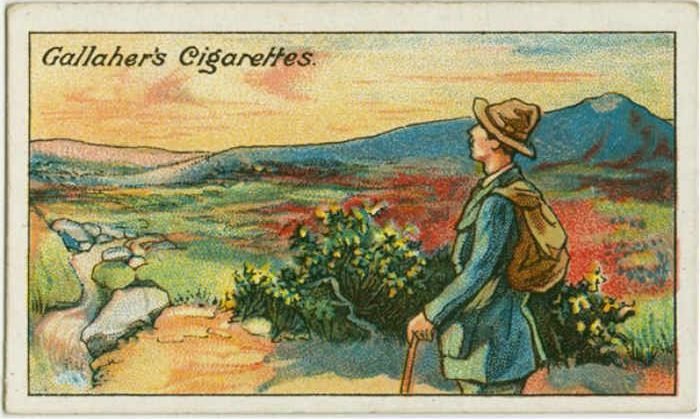
“The traveler, setting off in the early morning, will find a fairly sure guide as to the weather he is likely to encounter by watching a very small distant cloud. If the cloud grows gradually larger, then unsettled, rainy weather will probably come. But if the cloud decreases in size, the day should be a fine one.”
7. How to Treat Sprains
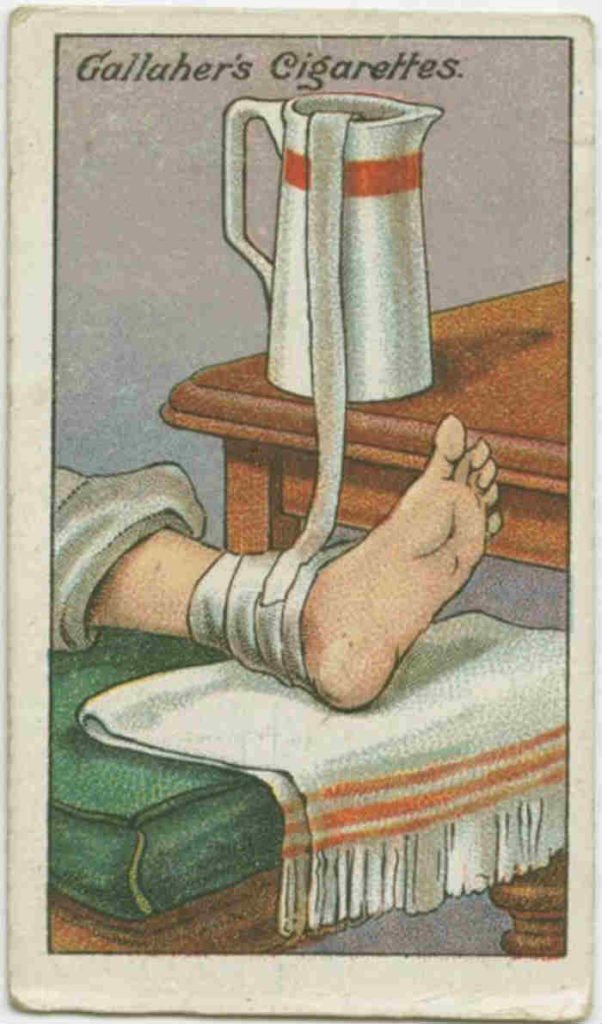
“Elevate the injured joint and wrap in cloths wrung out in cold water. The picture shows how to keep the cloths constantly wet without having to change them. A jug of water placed higher than injured limb, and a strip of linen with one end in the jug and the other end resting upon the wrapping of sprained joint, is all that is necessary. The water will pass from jug to compress by way of linen strip. Give a rubbing with oil or liniment as sprain gets better.“





